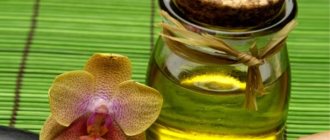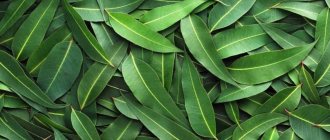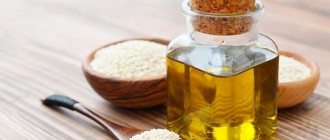Cypress: beneficial, medicinal properties, application. The Legend of the Cypress
Cypress is the oldest plant. Its ancestors grew back in the era of dinosaurs. Since prehistoric times, this beautiful tree has attracted people with its exquisite beauty, decorative wood, amazing aroma and unique healing properties.
These beautiful, slender and graceful trees adorn many of the most beautiful parks and gardens around the world.
Cypress trees were planted in ancient China near the borders of settlements - it was believed that cypress would protect villagers from harm and give them long life and good health .
In Greece, cypress was the emblem of the god of the underworld Hades , so the ancient Greeks and Romans used cypress branches as mourning symbols and called them the “tree of sadness.” In addition, cypress was planted as an ornamental plant in temple gardens . The ancient Greek writer Lucian wrote that the temple of Aphrodite, along with fruit trees, was decorated with “those that do not bear fruit, but for which beauty replaces fruit: cypresses and plane trees that reach to the sky. »
In the Christian tradition, cypress was in no way associated with sadness. On the contrary, it was a symbol of eternal life, youth and cheerfulness, endurance and health. The Bible mentions that cypress, cedar and fir were decorations in the Garden of Eden.
Since ancient times, cypress wood has been highly valued. Refined furniture, figurines, and church utensils were made from it. In ancient Egypt, cypress wood was used to make sarcophagi , and the oil was added to balsamic mixtures.
Plutarch recommended writing down laws on cypress tables, since this tree is not subject to decay. According to ancient mythology, Cupid's arrows, the club of Hercules and the scepter of Jupiter were made from cypress wood. It is believed that the gopher tree from which the biblical Noah's Ark was made is a cypress.
The healing properties of this wonderful plant have been known since ancient times. Wounds, burns and ulcers were treated with cypress resins.
But the most important property of cypress is to improve the condition of patients with diseases of the respiratory system . Since ancient times, patients from all over Europe went to the island of Crete or Capri, famous for its cypress groves, to recover.
During the Soviet era, many specialized sanatoriums and dispensaries were built in Crimea, where the combination of mountain air, proximity to the sea, mild climate and the healing influence of cypress, pine and laurel groves produced amazing results.
Cypress essential oil is used in the treatment of a number of diseases. In addition, cypress oil is an excellent cosmetic product.
Relieves anxiety and stress
A widely cited 2005 Trusted Source study on the benefits of aromatherapy massage looked at the effects of massages including lavender, cypress and sweet marjoram oils mixed with sweet almond oil.
It was found that massage had significant psychological and physical benefits for the subjects. In particular, it reduced the levels of anxiety and depression reported. However, there were only 11 participants in the study.
Beyond this, there is very little research on whether cypress oil alone reduces anxiety. However, if you find the scent relaxing or pleasant, adding cypress oil or a massage oil containing it to your diffuser won't hurt.
Cypress oil for health
Cypress essential oil has a unique antiseptic property. This is why it is so popular in the treatment of nonspecific inflammatory diseases of the respiratory system. Cypress oil relieves coughing and has a positive effect on external respiration function .
Cypress oil is an effective remedy for the prevention and treatment of ARVI . It is used for aromatizing rooms, inhalations, rubbing, compresses, baths.
The oil has a strong deodorizing property , so it is also used to freshen the air in musty rooms (and at the same time neutralize bacterial and fungal infections in damp rooms).
The oil has a stimulating effect on the cardiovascular system. Strengthens the walls of blood vessels , prevents the development of atherosclerosis, and normalizes blood pressure. Normalizes labile blood pressure.
Stimulates the functioning of the liver and gall bladder.
The essential oil of this wonderful plant has another amazing property - it has a beneficial effect on the nervous system, improves memory, eliminates absent-mindedness, and helps to concentrate attention . The oil successfully relieves nervous tension, eliminates anger, helps get rid of obsessive thoughts, clears consciousness, and restores sleep.
In addition, the oil reduces bleeding gums, prevents hemorrhages, and enhances blood clotting.
Relieves premenstrual tension, alleviates the condition during menopause (positively affects hormonal levels, relieves irritability, facilitates periods of “hot flashes”).
Reduces varicose veins
Many people use essential oils to treat varicose veins. Varicose veins are usually caused by poor circulation, weak veins and blood pooling. Therefore, it is often recommended to use massage to soothe the pain and swelling associated with varicose veins. This may include an aromatherapy massage using diluted cypress oil.
However, there is no evidence that cypress oil is an effective treatment for varicose veins.
Cypress oil for beauty
The oil is very successfully used in cosmetology to care for sensitive and redness-prone skin. Prevents excessive removal of moisture, as a result of which improves the condition of mature and aging skin. Prevents the appearance of vascular patterns on the skin, which is why it is used in the fight against rosacea. The vascular network on the face becomes less noticeable if you use masks and creams with cypress oil.
The oil has a beneficial effect on hair, prevents hair loss, makes it shiny, silky and healthy in appearance.
Cypress oil is used both alone and in mixtures with other oils: jasmine, sage, sandalwood, grapefruit, bergamot, etc.
- For massage: 3-5 drops per 10 ml of base oil. The same form can be used for hemorrhoids for tampons and lubrication of hemorrhoidal plaques 2 times a day.
- For a compress: add 5 drops of oil to 1 glass of warm water.
- For aroma lamp: 3-5 drops.
- For inhalation: 1-2 drops.
- In the bath: 3-5 drops, in the bath: 1-2 drops of oil, pre-mixed with an emulsifier (1/4 cup of milk, whey, honey solution, sea or kitchen salt).
- For enriching creams, tonics, gels, shampoos: 2-3 drops per 5 ml of base.
Use of cypress in folk medicine
In countries with tropical and subtropical climates in the northern hemisphere, tall evergreen trees called cypress trees grow. Most often, cypress has a pyramidal shape, but there are also species with a spreading crown. Cypress bushes are also sometimes found. In parks and gardens, cypress is planted as ornamental plants and serves as a good hedge.
Cypress wood is light and fully saturated with resins, which guarantees its long-term preservation. That is why in Ancient Egypt cypress was used to create sarcophagi, and the essential oil obtained from pine needles was used when embalming mummies.
For a very long time in folk medicine, the use of cypress has been practiced to treat various diseases. Essential oils, pine needles and cones are used.
Cypress essential oil has a tart, resinous odor. The content of camphene, pinene and terpene in the oil, when used in aromatherapy, normalizes a person’s emotional state and elevates mood, which is especially useful when hormones are unstable in the female body during menopause and premenstrual syndrome. Cypress oil is also used in cosmetology to care for oily skin, sweaty feet, bleeding gums and to strengthen hair, it also helps get rid of dandruff, and men can use it after shaving, adding a few drops to a gel or moisturizing lotion to prevent irritation skin. In addition, cypress oil has a wound-healing effect, relieves pain due to arthritis if applied externally, and also strengthens the walls of blood vessels.
For respiratory diseases, it is recommended to do compresses or inhalations and use cypress oil. To make a compress, you need to mix 5 drops of oil with a tablespoon of any base oil (olive, flaxseed, almond or another of your choice) and apply with massage movements to the chest area and neck. For inhalation, you will need a wide-necked saucepan or a deep plate, into which hot water is poured halfway and 2 drops of cypress oil are added. You should breathe the resulting vapors for no more than 10 minutes.
You can take essential oil internally by mixing it with honey or jam at the rate of 3 drops per 100 ml. If necessary, you can drink juice or water.
You can simply buy cypress oil at a pharmacy, but you can make it yourself from young shoots and cones by distillation.
Children, pregnant women, people who have had a heart attack, and people with cancer should use cypress oil with caution.
For medicinal purposes, a tincture is made from young cypress branches and cones. It is used for uterine bleeding and other female diseases. The recipe is:
- 20 g green cypress cones;
- a glass of 96% alcohol.
Mix the ingredients and infuse in a dark place for 14 days. The composition should be taken 10 drops on an empty stomach in the morning and 20 minutes before bedtime with a small amount of water.
A weak solution (5%) of the tincture indicated above can be used for intestinal lavage.
For skin diseases , prepare the following infusion for washing: add 300 ml of hot water to 30 g of cypress leaves and let it brew for about an hour, then use.
For varicose veins or heaviness in the legs, it is recommended to drink 3 glasses during the day, an infusion of 10 g of green cypress cones in a glass of boiling water.
The Legend of Cypress
The ancient Roman poet Ovid in “Metamorphosis” conveys the legend of the beautiful young man Cypress.
Legend has it that on the island of Keos in the Carthean Valley there lived a beautiful golden-horned deer, which its creator, Zeus, dedicated to the nymphs. The deer was beautiful in both stature and disposition. The inhabitants of Keos loved him, and he entered their homes without fear. But the deer especially became friends with the young son of King Keos named Cypress.
The guy could spend the whole day next to the deer, talking to him. He took his friend to clearings with lush grass and to loudly murmuring streams; he decorated its mighty horns with wreaths of fragrant flowers; often, playing with a deer, young Cypress, laughing, jumped onto its back and rode around on it through the flowering Carthean valley.
One day, on a hot afternoon, Cypress went hunting with his friend Apollo the Archer. He fired a deadly arrow into the trembling bush, thinking that there was prey there. But to everyone’s grief, a golden-horned deer was dozing there, overwhelmed by the midday heat. Cypress's arrow hit the deer right in the heart and he died. Cypress was horrified to learn that he had caused the death of his pet. The prince’s grief was inconsolable; he began to pray to the silver-bowed Apollo to let him be sad forever. God heeded the young man’s prayers and turned him into a beautiful tree, which, like an arrow, reached its top into the sky.
. His blood had already dried up from immeasurable crying. His limbs began to turn green; soon And the hair that fell around the snow-white forehead began to stick out straight and, having become stiff, began to look into the starry sky with a harmoniously rising peak.
Apollo sighed sadly and said: “I will always grieve for you, wonderful young man, and you will also grieve for someone else’s grief.” Always be with those who mourn!
Attention!
The information on the site does not constitute a medical diagnosis or a guide to action and
is intended for informational purposes only.
Contraindications to the use of cypress oil
It is often thought that essential oils are safe because they are natural. Although essential oils have a wide range of benefits, they can be dangerous if used incorrectly.
If you or someone you know has ingested cypress oil, call the hotline immediately. It could be an allergy to essential oils. Symptoms of an allergic reaction may include:
- rash and redness
- pain or burning
- swelling
- itching
- hives
If you think you are having an allergic reaction to an essential oil, discontinue use immediately. If the symptoms of your reaction are severe, contact your doctor immediately. Keep in mind that the FDA does not regulate essential oils. Always choose high quality essential oils from reputable brands.
If you are pregnant or breastfeeding, avoid using essential oils. You should also avoid using essential oils on babies, young children, or pets unless recommended by a doctor.
Cypress: miraculous properties, symbolism and ancient beliefs
People of archaic societies usually first of all deified those natural phenomena and objects that had important outstanding properties that helped to survive and made human life more civilized. Cypress belongs to this category of gifts of nature. Its healing and disinfecting properties have long been known. A decoction of its branches was used to treat fever and joint diseases. Compresses, lotions and hot baths of this kind were considered very useful.
The ancient Greek god of healing, Asclepius (Aesculapius), used cypress resin ointment to heal skin ulcers and wounds received by heroes in battles. The famous Avicenna made infusions from cones and used them to treat varicose veins and hemorrhoids, stomach and intestinal spasms, severe hiccups, and female bleeding. He also argued that patients suffering from hemoptysis and heavy breathing should visit cypress groves more often.
In addition, cypress greens and needles were used to preserve the freshness of meat and other products, and shamans used the smoke of a fire in which cypress branches were burned for cleansing and medicinal purposes. In particular, it was used to fumigate people possessed by evil spirits and infertile women (it was believed that cypress helps to conceive children). Wreaths from the branches of this tree were hung on the walls of homes to protect them from evil forces. For this purpose, trees were planted around houses and next to graves.
Farmers scattered cypress branches among young shoots to ward off pests and other troubles that could damage the future harvest. This tree was considered mainly masculine and was a symbol of potency, sexual strength and attractiveness. Young men of the ancient world sought to have some kind of cypress among their amulets, since, according to everyone, this was guaranteed to ensure their attractiveness in the eyes of the fairer sex.
Cypress wood was highly valued for its outstanding qualities. It has long been noted that it is not only beautiful and remarkably plastic, but also very durable. It equally withstands high humidity and arid heat - it does not rot or crack in unfavorable conditions. Thanks to the phytoncides it contains, it can be stored for many centuries, practically without changing its properties. Therefore, products made from this wood were considered literally precious. Sometimes, during the conquest of cities, rich buildings were destroyed only so that cypress building elements could be extracted from them.
These typically included doors, ceiling beams, floors, columns, and carvings on walls and ceilings. Rich Babylonians, Phoenicians, Egyptians, Hellenes, and Romans sought to use cypress to build luxurious family homes. It is known from the Bible that during the construction of the famous palace of King Solomon, only Lebanese cedar and cypress wood was used. The latter was used for floors and interior items: chests, caskets, caskets. And the ancient Romans kept the most important things in cypress caskets, including the most valuable scrolls, and laws were often carved on cypress boards.
Musical instrument makers and gunsmiths were equally willing to use cypress in their craft. It is known that the best ancient Greek citharas were made from it. One of the most famous of these citharas belonged to Apollo himself, and the second belonged to his favorite Orpheus, who, with its help, was able to pity even the gods and demons of the underworld and almost brought out the shadow of his beloved wife Eurydice. The best spears, arrows and clubs were also made from this durable and expensive wood.
At least, the arrows of Eros and Apollo with Artemis, as well as the club of Hercules, were made of cypress, as were the scepters of Kronus (Saturn) and Zeus (Jupiter). And the fast and reliable fleet of Alexander the Great, according to legend, was built entirely from cypress trees. This protected the ships from destruction, and they plied different seas for many decades after the death of the great commander.
Benefits and indications for cypress oil
Everyone knows that cypress oil relieves nervous tension very well; baths with this oil relieve fatigue and relieve insomnia. In case of irritability and other disturbances in the emotional sphere of a person, it will help to calm down and gain emotional balance. You can also use cypress oil as an aphrodisiac - to enhance the sensitivity of erogenous zones and stimulate blood circulation in the pelvic organs. In this sense, it is effective even for people who are not very young.
Why I love my robot vacuum cleaner so much: sharing my own experience
In folk medicine, cypress oil is used for varicose veins, hemorrhoids, menopausal problems, infectious and bronchopulmonary diseases.
In the traditions of oriental medicine, in particular in Tibet, the use of cypress oil as a cleanser has survived to this day. It is used to treat diarrhea and reduce sweating of the body and feet.
Bioenergy specialists call cypress oil a “protector.” It can prevent the outflow of power from a person to an energy vampire, as well as protect the chakras from foreign inclusions: the evil eye and damage. It is recommended to place a vessel with water and 3-4 drops of oil or an aromatic lamp near the bed at night for a more restful sleep. During the day, you can wear an aroma locket or apply oil to your temples and wrists several times a day.
This is especially useful for people who, due to the nature of their work, communicate a lot with other people or spend a lot of time on public transport.










